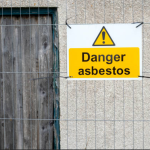Access to quality healthcare is crucial for the well-being of every child. Many vulnerable children face barriers to receiving the care they need. These challenges often stem from financial constraints, lack of awareness, or geographical limitations. Ensuring their health is a responsibility and a step toward building stronger communities.
A non profit for children plays a transformative role by addressing the healthcare needs of vulnerable young individuals. These organizations provide resources, support, and access to medical services that would otherwise be out of reach. Let’s explore how these organizations are changing lives through targeted healthcare efforts.
Providing Access to Primary Healthcare Services
Non-profits focus on providing essential healthcare services to children in underserved communities. They establish clinics, mobile units, and telemedicine programs to reach remote areas. These services ensure that children receive vaccinations, check-ups, and treatments for common illnesses. Access to primary concern reduces the long-term impact of untreated conditions on children’s lives.
Such efforts also help detect developmental or health issues early, improving outcomes with timely intervention. By addressing these needs, non-profits lay the groundwork for fitter childhoods and futures. These programs address immediate concerns and promote a culture of regular check-ups.
Promoting Preventive Healthcare and Awareness
Preventive care is critical in reducing the burden of disease among children. Non-profits organize awareness campaigns and workshops to educate communities about hygiene, nutrition, and immunization. These efforts focus on preventing illnesses before they become severe, saving lives and resources. Teaching families about proper hygiene and sanitation practices can significantly lower the risk of infections.
Immunization drives protect children from preventable diseases like measles, polio, and hepatitis. Nutritional programs address malnutrition, ensuring children receive the essential vitamins and minerals to grow. Preventive initiatives improve individual wellness and strengthen entire communities.
Supporting Mental Health and Emotional Well-Being
Non-profits recognize the importance of mental health as part of comprehensive care for children. They provide counseling services, therapy, and emotional support to children dealing with trauma or stress. These programs address issues like anxiety, depression, and the psychological impact of challenging circumstances. Support systems in schools and communities ensure they have a safe space to express their emotions.
Workshops and group sessions promote self-confidence, resilience, and strong coping mechanisms. By addressing mental needs, nonprofits help them thrive emotionally and socially. They also work to remove the stigma surrounding mental health and encourage families to seek support.
Empowering Families Through Education and Resources
Non-profits often work closely with families to ensure they are equipped to support their children’s well-being. They provide resources like first-aid kits, nutritional supplements, and access to emergency care. Workshops and educational materials teach parents about childhood development, disease prevention, and wholesome habits. Empowered families can better advocate for and manage their needs.
These programs also include training for caregivers on identifying and addressing health concerns. Non-profits collaborate with local leaders to create a network of support for families in need. By fostering a support network approach, they ensure sustainable improvements in their well-being.
Building Sustainable Healthcare Systems
Nonprofits often work to create sustainable systems within communities. They partner with local governments, medical professionals, and organizations to expand access to care. Training healthcare workers ensures that communities have skilled professionals to address their needs. These efforts create a framework for long-term solutions rather than temporary fixes.
Programs also focus on improving infrastructure, such as building clinics and equipping them with modern tools. Nonprofits strive to create a lasting impact by strengthening local capacities and resources. A sustainable system benefits not only current but also future generations.
A non profit for children transforms lives by providing access to critical healthcare and preventive programs. Creating sustainable systems leaves a lasting impact on communities and future generations. Their efforts highlight the importance of prioritizing children’s well-being in building stronger societies. The work of these organizations serves as an inspiration for collective action toward a brighter future.














